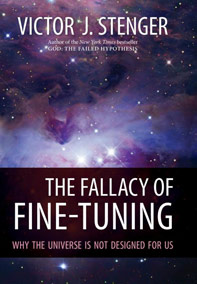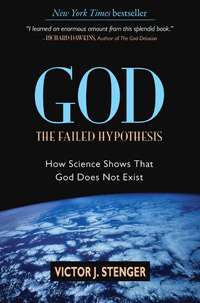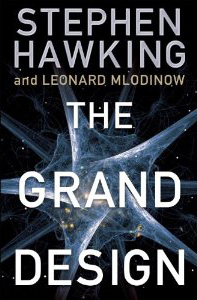In this week’s eSkeptic:

Report from Atlanta
SkeptiCamp 2011
As the international skeptical community gears up for another season of conferences presented by established organizations like: the Skeptics Society (Science Symposium), the James Randi Educational Foundation (The Amazing Meeting), and the Committee for Skeptical Inquiry (CSICon), a new generation of skeptics are also finding the critical thinking movement in their own back yards at local meet ups called SkeptiCamps (community driven, informal ‘un-conferences’ born of people’s desire to share and learn in an open environment).
This week on Skepticality, Derek & Swoopy report from Atlanta SkeptiCamp 2011 and share one of this year’s SkeptiCamp talks by Skeptic History contributor Tim Farley appropriately entitled “Don’t Start a Blog or Podcast,” on the topic of how to handle the vast amount of skeptical content created by blogs and podcasts, and how to stand out if you decide to jump into the fray.
The Latest Episode of Mr. Deity
WATCH THIS EPISODE | DONATE | NEWSLETTER | FACEBOOK | MrDeity.com
About this week’s feature article
In this week’s eSkeptic, Andrew Zak Williams reviews Victor Stenger’s new book The Fallacy of Fine-Tuning: Why the Universe is Not Designed for Us.
Andrew Zak Williams is a barrister based in England. He has written for The Independent newspaper, The New Statesman, The Humanist and American Atheist. He is also a columnist at www.secularnewsdaily.com.
SUBSCRIBE to Skeptic magazine for more great articles like this one.

The Physics of Atheism
by Andrew Zak Williams
If there’s one thing that best-selling author and physicist Victor Stenger loves, it’s a good story. That was probably the first thing I noticed when we spoke in his home study on a crisp early summer morning in Lafayette, Colorado.
Stenger is one of the most prominent atheist science writers of the last decade, so I was curious to know where his antipathy toward religion came from. His answer took me on a 40-year journey from his student days at UCLA, to meeting his future wife while singing in a Methodist church choir, and on to being a physics professor at the University of Hawaii. After ten minutes, he hadn’t even reached the part where he became an atheist so I felt that I had to interrupt him: “You sang in a church choir?”
“Religion and atheism weren’t matters which I thought a lot about,” he explained. “It wasn’t until the eighties that that changed. That’s when it really started to annoy me how science, and in particular physics, was being abused by religious people. My concern was that they were misusing science to come to conclusions which they had reached only for religious reasons. That’s probably when I realized that I was an atheist.”
As he talked, Stenger took in the impressive view from his study window, albeit one that narrowly misses the nearby mountain range. A pristine copy of his new book, The Fallacy of Fine-Tuning—released in April—sat on a shelf behind him. As with his previous works, it’s a physics-heavy debunking of theistic claims for the existence of God. And judging by the sales of his recent books, it will soon be adorning plenty more shelves.
It has been his stance against the purported science of Christian apologetics which has made Stenger’s name. His first foray into their territory came with the 2003 book Has Science Found God? “I felt that I made a contribution to the question of Intelligent Design,” he told me. “I read William Dembski’s book Intelligent Design: The Bridge between Science & Theology. He had something in there called the Law of Conservation of Information. He claimed that the amount of information output by a living system could never exceed the amount of information input without the involvement of an intelligent designer. As a physicist I knew that that wasn’t true because information is linked to entropy, and the entropy of a closed system can increase with time. And so I explained in my book how Dembski had got it wrong.”
Clearly Intelligent Design, and its requirement for a divine meddler in the laws of science, irks him. “There is nothing in the realm of human knowledge that requires anything supernatural, anything beyond matter, to describe our observations. I am almost one hundred percent certain that the God of Abraham worshipped by Jews, Christians, and Muslims doesn’t exist. This God supposedly plays such an important role in the universe that there should be evidence that he exists. That was the theme of God: The Failed Hypothesis.”
That was the book which, in 2007, granted him best-seller status. According to Stenger, “My publisher was really surprised and wasn’t ready for it, never having had a bestseller before.” Suddenly, seven years after his supposed retirement, it was his book which arguably set the benchmark for atheistic science writing. It has been so successful that now, in his mid-seventies, he finds himself being frequently invited to address physics conferences where it is hoped that his name will add a certain pizzazz.
But there is a downside to his so-called retirement. “Since I left full-time work, I’ve spent time with many well-off elders who listen only to Glenn Beck, Rush Limbaugh and Fox News, and get a distorted, religion-based view of political reality. They also are tremendously self-centred and lacking in compassion for the needy and lower classes in society.”
Perhaps that is why he is inclined to spend so much time locked in his study, penning a steady stream of physics texts all containing a straight-to-your-face atheistic slap. His latest book is dedicated to his friend, Christopher Hitchens. After all, “he is the only one of the ‘four horsemen’ who regularly credits my work. And his courage is an inspiration.”
It was Hitchens who wrote the Forward to God: The Failed Hypothesis in which he drew attention to Stenger’s passage dealing with the fine-tuning argument. The theistic argument goes like this: if the laws of physics were even slightly different than how they are, none of us would exist; therefore there must be a God who made the laws that way. It is a topic on which Stenger has written numerous times. But why did he dedicate a whole book to it now? “I hear Christians raise the fine-tuning argument so often and I am sufficiently expert to address it,” he explained. “I have always been interested in these types of basic questions.”
It is an issue about which numerous physicists have reached very different conclusions. The most frequent answer that skeptics raise in response to the fine-tuning argument relies on M-Theory. This developing theory attempts an overarching union of the five versions of string theory. The ten dimensions of space that follow from the mathematics of M-Theory allow for the conclusion that an imponderable number of universes— a Multiverse—have been and are being spontaneously created, all with different laws of physics. And so it is no surprise that we find ourselves living in the one whose laws of physics allow us to exist. Stephen Hawking made headlines last year when his book The Grand Design, co-written with Leonard Mlodinow, lent his support to this theory.
Sir Roger Penrose, an atheist, rejects the fine-tuning argument, but for wholly different reasons. He argues that M-theory is unscientific. According to his theory of Conformic Cyclic Cosmology, the beginning of our universe (or as he prefers to call it, our “eon”) was also the end of a previous one. He does not rule out the possibility that his theory could be extended to provide for a process of constantly successive eons, each with different laws of physics. We happen to live in the one with bio-friendly laws.
On the other hand, best-selling science writer Paul Davies largely accepts the fine-tuning argument and believes that the universe must be the product of some kind of intelligence, albeit not a god in the conventional sense.
Yet for Stenger, fine-tuning is a fallacy and so there is no case for atheists to answer. They simply do not need to resort to Multiverses or to cyclical universes. His book discusses each of the usual examples of fine-tuning that Christian apologetics raise. He applies well-established physics, seeking to demonstrate that in each case, “the parameters of physics and cosmology are not particularly fine-tuned for life, especially human life.”
For example, Stenger agrees that the ratio of protons and electrons in the universe is sufficiently precise as to enable life to ultimately form. However that does not mean that there was the need for a divine being to intervene to ensure that the ratio was correct. He writes, “The number of electrons in the universe should exactly equal the number of protons because of charge conservation, on the reasonable assumption that the total electric charge of the universe is neutral—as it should be if the universe came from ‘nothing’ and charge is conserved.”
Similarly, it is true that the universe would have collapsed before it reached its present size if its expansion rate at one second after the Big Bang had been lower by as little as one part in many billions. However he explains that the expansion rate was automatically very close to the critical rate due to the energy density of the universe.
But I wondered why most writers and academics don’t share Stenger’s opinion. He swatted away the question, pointing out that he is the first person to systematically go through each of the specific theistic claims of fine-tuning. “Generally speaking, physicists shy away from attacking religious claims directly. They are not under direct attack the way that biologists are. But dealing with these kinds of claims is my niche. And I’m one of only one or two physicists who are confrontationists.”
Perhaps his confrontationist personality trait is in his genes. His book tells of the determination of his Lithuanian grandmother who risked catching a terminal disease when she nursed a sick neighbor who would later become her husband. After they married, her husband moved to the U.S. looking for work. When she hadn’t heard from him for two years, she took a nightmare journey to America with three children in tow. This was in 1908. Despite not speaking a word of English, somehow she managed to find him. The family then settled down nearby, where their son later met his future wife and had a child, Victor Stenger.
“The point of my little story,” he explained, “was to illustrate that simply finding a low probability for something happening doesn’t preclude it from happening. You have to compare alternative probabilities.” And for Stenger, it is far more probable that human life evolved in a universe without God twiddling the knobs to set the laws of science than it is that there is such a divine being in the first place.
The book doesn’t hold back in its criticisms of leading Christian apologetics such as Hugh Ross and William Lane Craig. Stenger even lists in bullet-form what he considers to be their mistakes. For instance, they “misunderstand and misuse probability theory.” They also fail to consider “that with the hundreds of billions of planets that likely exist in the visible universe, and the countless number beyond our horizon, a planet with the properties needed for life is likely to occur many times.”
That word “confrontationist” leaps to mind again. But what is it about religion that has him spoiling for a fight?
“Religion does not offer comfort,” he told me. “In fact, the opposite is true. I knew several Catholic families, relatives and neighbors, who lost children in childhood. Despite their priests compassionately assuring them that it wasn’t their fault but God’s will, they never believed it. The rest of their lives they lived in misery, blaming themselves. They figured they must have committed some sin that God was punishing them for.”
There were more stories where that came from, and it is apparent that even a cerebral individual like Stenger cannot help but be influenced by what he sees around him. “I’m close to a family who are part of a Protestant cult,” he continued. “The wife was mistreated and died young of drug addiction and alcoholism. And even though the husband had a Ph.D., the daughters weren’t encouraged to go to college because the cult looked at females as inferior and there to serve men. Unsurprisingly the girls have gone on to have troubled lives.”
However, there was a sparkle in his eye. “I won’t live to see it,” he said, “but someday religion will disappear from the face of the Earth. It has to. It is too evil and too absurd.” The disappearance of religion from the face of the Earth? Now, that would be a story worth telling.![]()
Skeptical perspectives on the Universe and God’s existence…
-
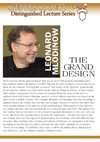 The Grand Design
The Grand Design
by Leonard Mlodinow
-
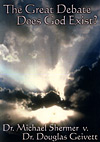 The Great Debate: Does God Exist?
The Great Debate: Does God Exist?
Dr. Geivett v. Dr. Shermer
-
 The Atheism Tapes (2-DVD set, 90 min. each)
The Atheism Tapes (2-DVD set, 90 min. each)
by Jonathan Miller

Solution to last week’s Mystery Photo
The Mystery Photo from June 8th is The Fremont Troll (aka the Troll Under the Bridge), a giant public art piece under the north end of the Aurora Bridge in the Fremont neighborhood of Seattle, Washington. He eats cars for lunch; in his hand is a Volkswagen Beetle. Avoid using this bridge at mealtimes.
This week’s Mystery Photo
Who is this statue depicting and where is it located?
We will reveal the answer to this week’s Mystery Photo in next week’s eSkeptic.




